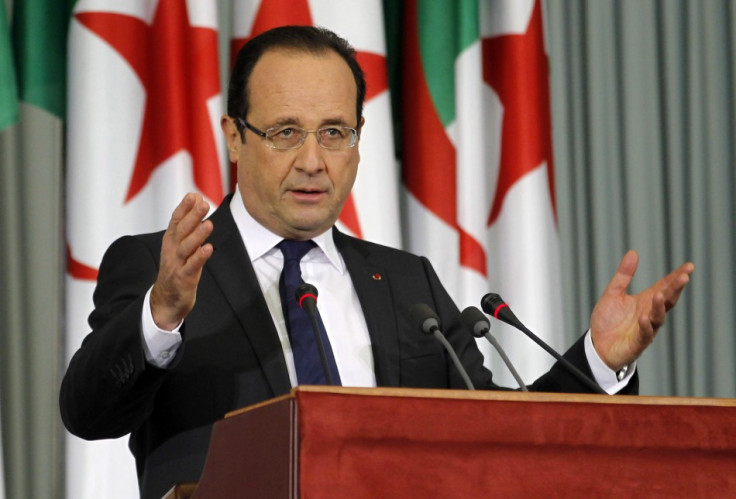Hollande Snubs Apology for 'Brutal' French Colonial Rule in Algeria [VIDEO]

French president Francois Hollande has refused to issue a full apology for France's 132 year colonial rule in Algeria but called its iron fist "brutal and unjust" as he seeks to improve relations between the two countries.
"I recognize the suffering the colonial system has inflicted" on the Algerian people he told the two house of parliament during his state visit to the North African state.
He recognised the "massacres" perpetrated by French during the seven-year war that led to Algerian independence in 1962. Thousands of Algerians were killed by the French army which used also torture as a way to curb the pro-independence movement.
Hollande's predecessors all remained silent on the issue except Sarkozy who too acknowledged the harshness of France's colonial rule.
However, the former president said he couldn't "ask children to apologize for the faults of their fathers."
Hollande's visit, called by 10 Algerian political parties to "recognise, apologise for and compensate", came as Algeria celebrates 50 years of independence from France.
But Hollande said he would make no apologies. "Establishing the truth is an obligation that ties Algerians and French," he said. "That's why it is necessary that historians have access to the archives."
During the war, an estimated 500,000 Algerians were killed according to French historian Benjamin Stora. French official statics put the figure at 243,000. About 7,000 French settlers were killed or kidnapped. The French military lost 27,500 men.
Prime Minister Abdelmalek Sellal said that Algeria would no longer demand an apology. During an interview with France 3 television, he claimed that although all Algerians are proud of their War of Liberation "we are in a new historical phase". "We must recall our past, that is clear, but what's essential is to build our future," he said.
He listed the sites of three massacres, including Setif, 186 miles east of Algiers. French colonial troops clamped down on an uprising which started on 8 May 1945, as eWorld War II came to an end. The unrest began when police confiscated Algerian flags, which were banned at the time.
Algerians say some 45,000 people may have died. Figures in France put the number of Algerian dead at about 15,000 to 20,000.
Hollande and Algerian president Abdelaziz Bouteflika agreed on a re-launch of economic, strategic and cultural relations between the two countries.
© Copyright IBTimes 2025. All rights reserved.






















